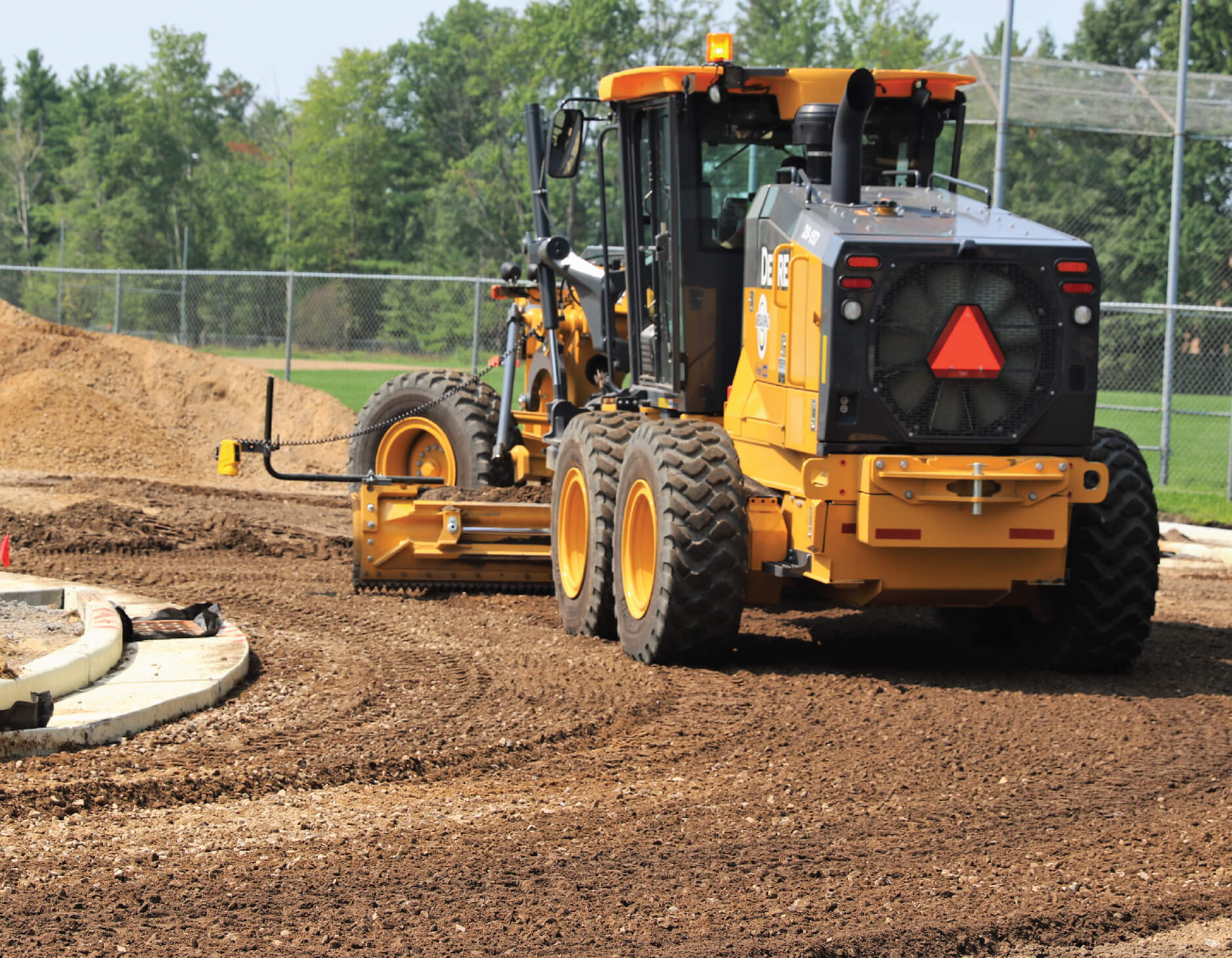Understanding the Primary Purpose of Construction Grading

Construction grading is a fundamental aspect of any construction project, playing a pivotal role in shaping the terrain and establishing the foundation for further development. It involves manipulating the land to achieve desired slopes and contours, ensuring stability, proper drainage, and a solid base for structures. In this article, we will delve into the primary purpose of construction grading, exploring its various facets and significance in the construction industry.
1.1 Definition of Construction Grading
Construction grading, commonly known as land grading or earthwork, refers to the process of altering the topography of a site by cutting, filling, and leveling the land. This is done to create a stable and suitable foundation for construction projects, roads, landscaping, and other developments.
Importance of Construction Grading
2.1 Ensuring Stability
One of the primary purposes of grading is to ensure the construction grading stability of the construction site. By carefully adjusting the elevation and slope of the land, engineers and construction professionals can mitigate the risks of erosion, landslides, and other geological challenges. Stable ground is essential for preventing structural damage and ensuring the safety of the built environment.

2.2 Proper Drainage
Construction grading plays a crucial role in managing water runoff and preventing water accumulation on the construction site. By creating slopes and contours that direct water away from structures, construction grading helps in avoiding water-related issues such as flooding and foundation damage. Proper drainage is essential for the longevity and resilience of buildings and infrastructure.
2.3 Foundation Support
A well-executed grading plan provides a solid foundation for construction projects. It ensures that the ground is level and can support the weight of buildings, roads, and other structures. This foundation support is critical in preventing settlement issues and structural failures over time.
Components of Construction Grading
3.1 Cut and Fill
Cut and fill operations are fundamental components of grading. “Cut” refers to the excavation and removal of soil from higher elevations, while “fill” involves adding soil to lower areas. This process helps create the desired contours and slopes on the construction site, ensuring a level surface for development.
3.2 Slope and Gradient
Controlling the slope and gradient of the land is essential in grading. Engineers carefully calculate and design slopes to achieve the necessary stability and drainage for the site. This involves considering factors such as soil type, climate, and the intended use of the land.
3.3 Compaction
Compaction is the process of compressing soil to increase its density and strength. This is crucial in construction grading to enhance the load-bearing capacity of the soil, reducing the risk of settlement and ensuring a stable foundation. Compaction also helps in improving the soil’s resistance to water penetration.
The Construction Grading Process
4.1 Site Assessment
Before grading begins, a thorough site assessment is conducted. This involves analyzing the existing topography, soil composition, and drainage patterns. The information gathered during this phase informs the development of a grading plan tailored to the specific needs and challenges of the site.
4.2 Grading Plan Development
Based on the site assessment, engineers develop a grading plan that outlines the cut and fill operations, slope gradients, and other necessary adjustments to the land. This plan serves as a blueprint for the grading process, guiding the equipment operators and construction teams.
4.3 Execution
With the grading plan in hand, construction teams utilize heavy equipment such as bulldozers, excavators, and graders to implement the necessary cut and fill operations. Precision is key during this phase to achieve the desired slopes and contours outlined in the grading plan. Compaction is also performed to enhance the soil’s stability.
4.4 Quality Control
Throughout the construction grading process, quality control measures are implemented to ensure adherence to the grading plan and engineering specifications. This may involve testing the compaction levels, monitoring slope gradients, and addressing any unforeseen challenges that may arise during the execution phase.
Challenges in Construction Grading
5.1 Environmental Impact
Construction grading can have significant environmental implications, particularly if not executed responsibly. The removal of vegetation, soil disturbance, and alteration of natural drainage patterns can lead to erosion, habitat disruption, and increased water runoff. Mitigating these impacts through sustainable grading practices is essential.
5.2 Regulatory Compliance
Construction grading is subject to various regulations and permits to ensure that the work meets environmental and safety standards. Navigating the regulatory landscape can be challenging, requiring close collaboration between construction professionals and regulatory authorities to obtain the necessary approvals.
5.3 Unforeseen Site Conditions
Site conditions may vary, and unforeseen challenges can arise during the grading process. Issues such as unexpected soil composition, underground utilities, or geological complexities may require adjustments to the grading plan on the fly. Adapting to these challenges while maintaining the project’s integrity is a crucial aspect of grading.

Future Trends in Construction Grading
6.1 Technology Integration
Advancements in technology are transforming the construction industry, and grading is no exception. The integration of GPS and telematics in heavy equipment allows for more precise grading, reducing errors and improving efficiency. Drones are also being utilized for site surveys and monitoring, providing real-time data to inform grading decisions.
6.2 Sustainable Practices
As environmental concerns become increasingly prominent, the construction industry is shifting towards more sustainable practices. This includes minimizing soil disturbance, implementing erosion control measures, and incorporating green infrastructure solutions to mitigate the environmental impact of grading.
6.3 Automation
Automation in grading is on the rise, with autonomous heavy equipment becoming more prevalent. This not only improves efficiency but also enhances safety by reducing the need for human operators in hazardous conditions. However, the integration of automation comes with its own set of challenges, including technical considerations and workforce implications.
Conclusion
In conclusion, grading serves as the bedrock for successful and sustainable construction projects. Its primary purpose encompasses ensuring stability, providing proper drainage, and establishing a solid foundation. Through cut and fill operations, careful slope and gradient control, and effective compaction, construction sets the stage for the safe and resilient development of infrastructure.
While facing challenges such as environmental impact and regulatory compliance, the construction industry is evolving with technological advancements and a growing emphasis on sustainable practices. As we look to the future, the integration of technology, increased sustainability, and automation will likely shape the landscape of construction , contributing to more efficient and environmentally conscious development. Understanding the importance and intricacies of grading is essential for professionals in the construction industry and those interested in the built environment’s sustainable future.









